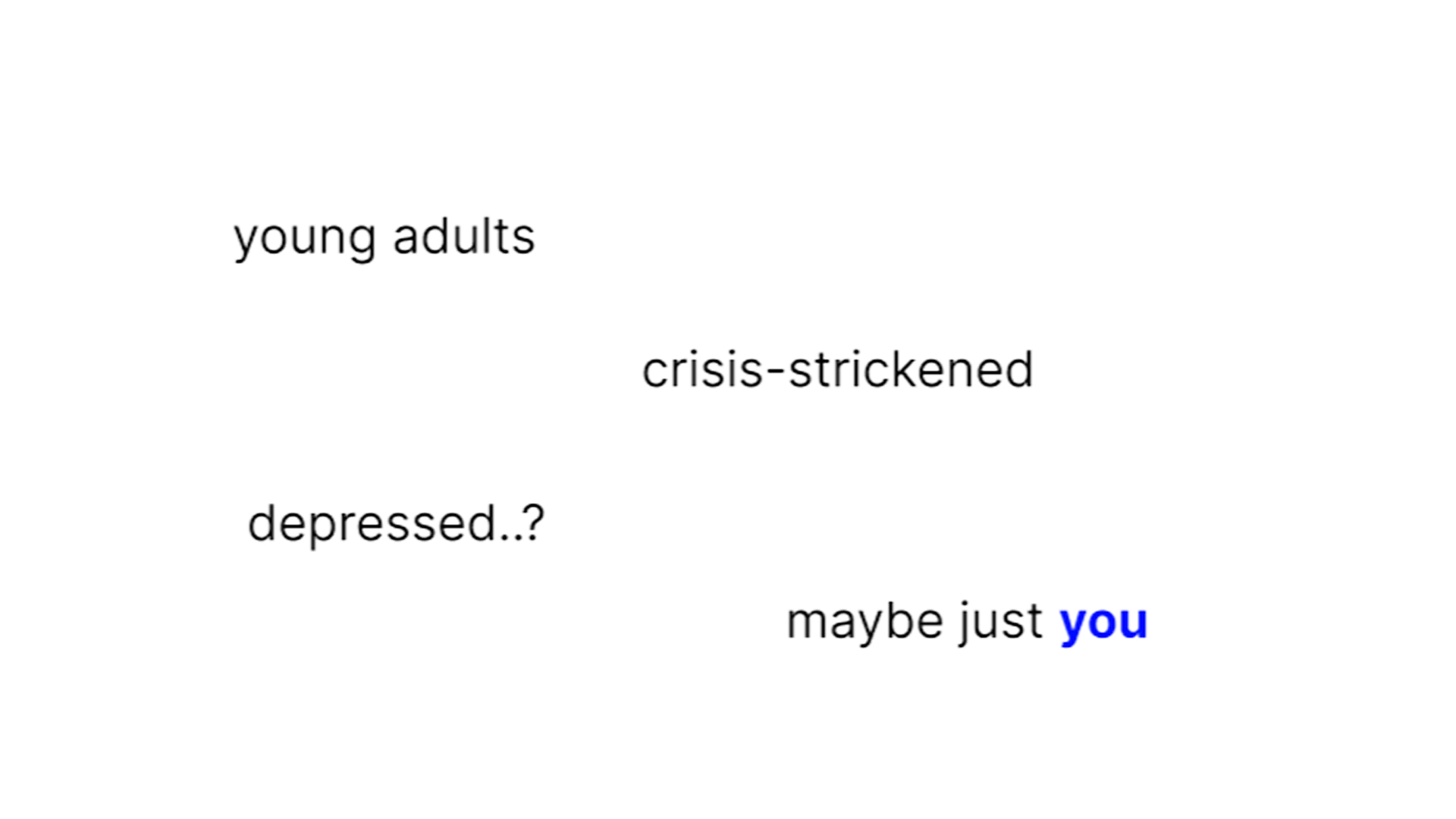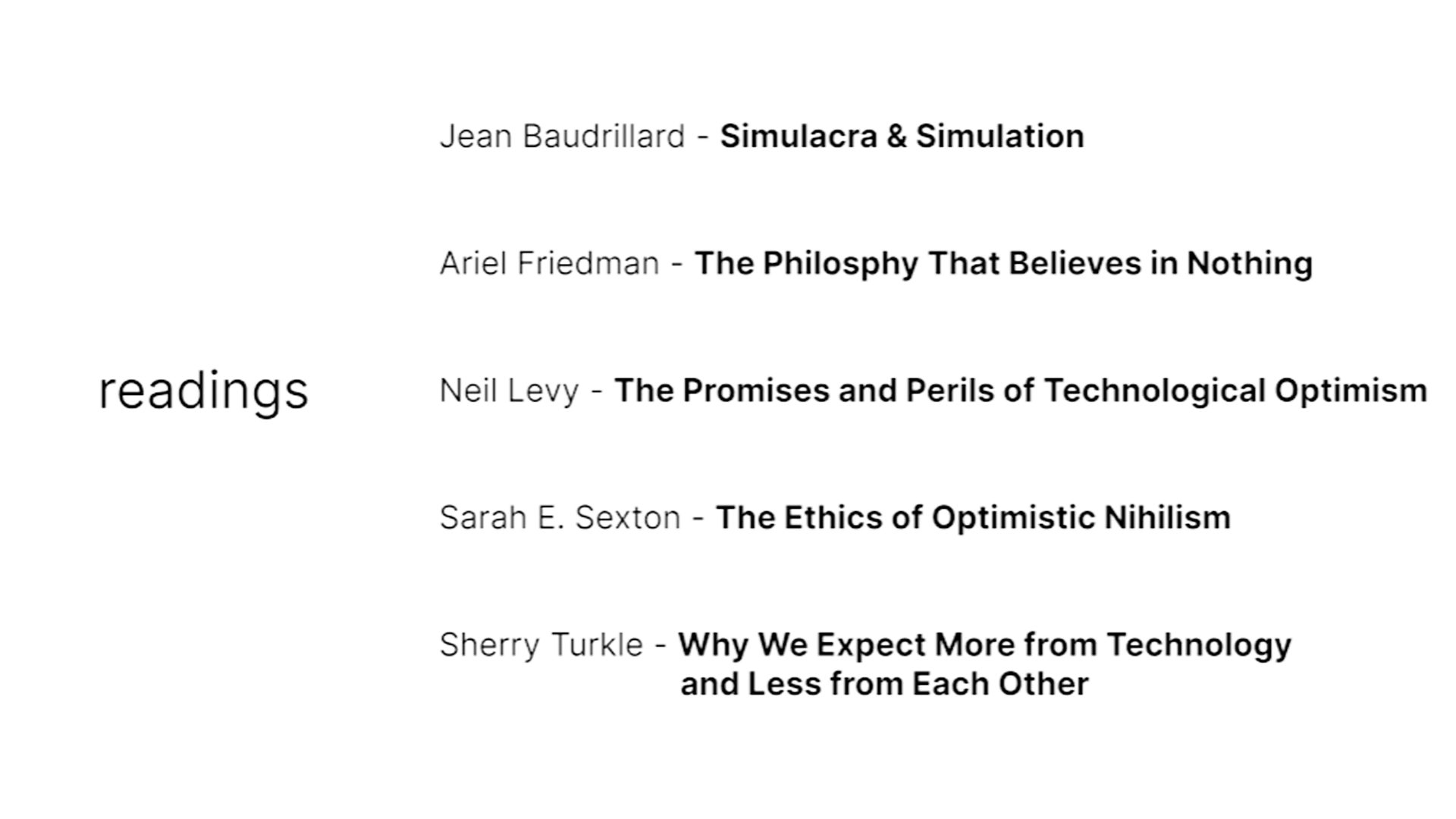
During my recent presentation on the intricate connections between optimistic nihilism and technology, I couldn't help but feel nervous. The topic itself was complex, bridging philosophy and technology, and presenting it in a concise and engaging manner was no small feat. It was tough for me to draw a relation between philosophy and design, and I ended up focusing on explaining what optimistic nihilism was.
I talked about its core principles - recognising that life is inherently meaningless and we should be seeking our own meaning in life. However, technology was in the way. Our interactions with technology had caused us to lose our autonomy, motivation, personal initiative and made us live on the terms of others. This was directly conflicting with the core principles of optimistic nihilism.
The tricky part is that it affects everyone of all ages, basically anyone who interacts with technology on a daily basis. Due to this fact, I could not exactly pinpoint a specific target audience.
-
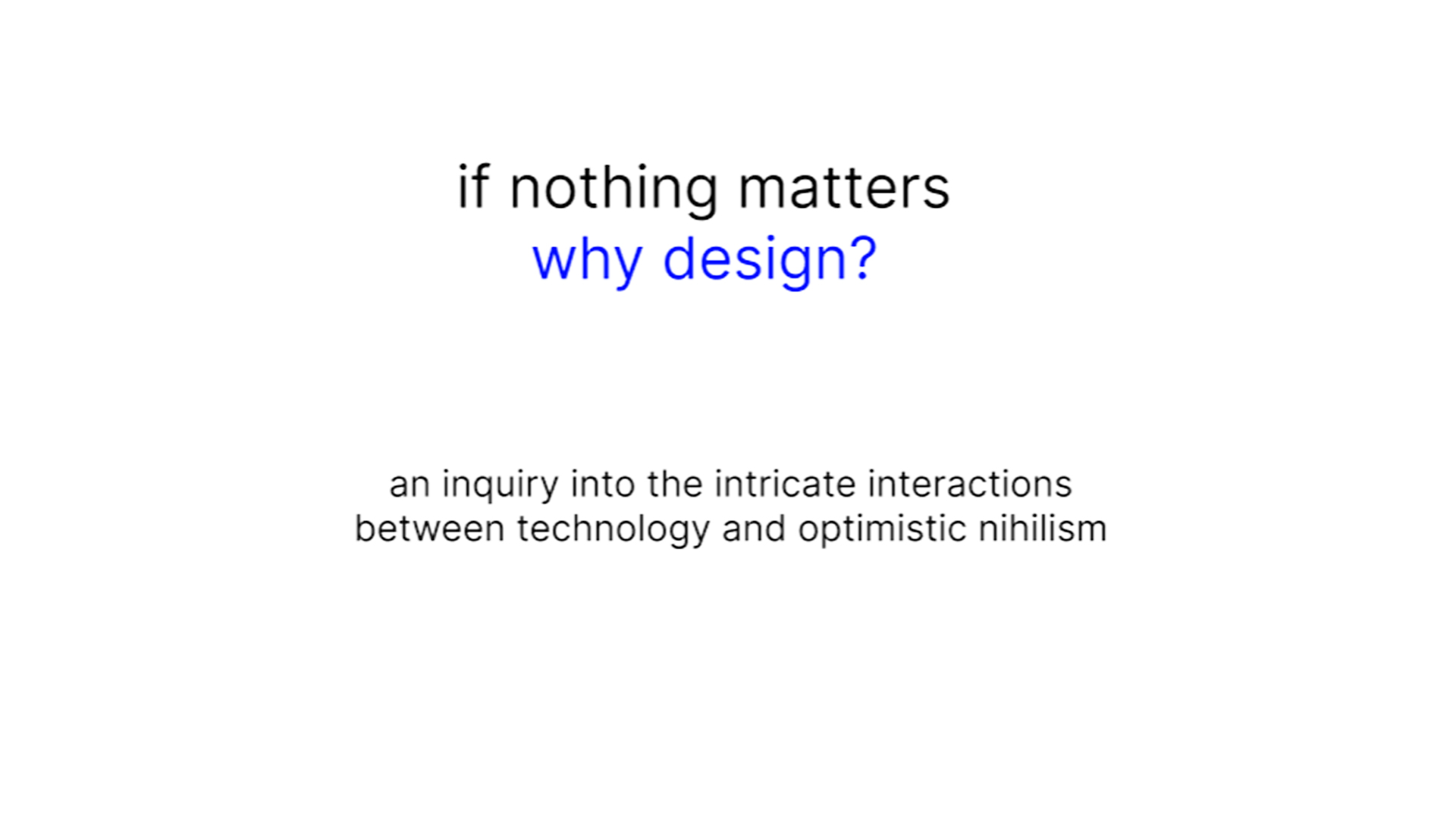
Presentation Optimistic Nihilism and Technology
If it becomes a personal journey, what is the value for my audience? This was a question I could not answer. First of all, I could not identify my audience in the first place. Do I want to target nihilists and turn them into optimistic nihilists? Do I simply inform? Do I talk to people who identify as optimistic nihilists and investigate their interactions with technology?
A tip I got was to use optimistic nihilism as the approach to doing the work. The design outcomes could be a result of implementing the philosophy as the design approach, and documented as such. As intriguing as this idea was to me, I could not wrap my head around it, nor could I imagine such a result.
I focused too much on philosophical readings, which led me down a spiralling rabbit hole. Instead of these readings, I could focus on other design-oriented pillars such as experience and interaction design. My case studies and inspiration list should also be more design-related.
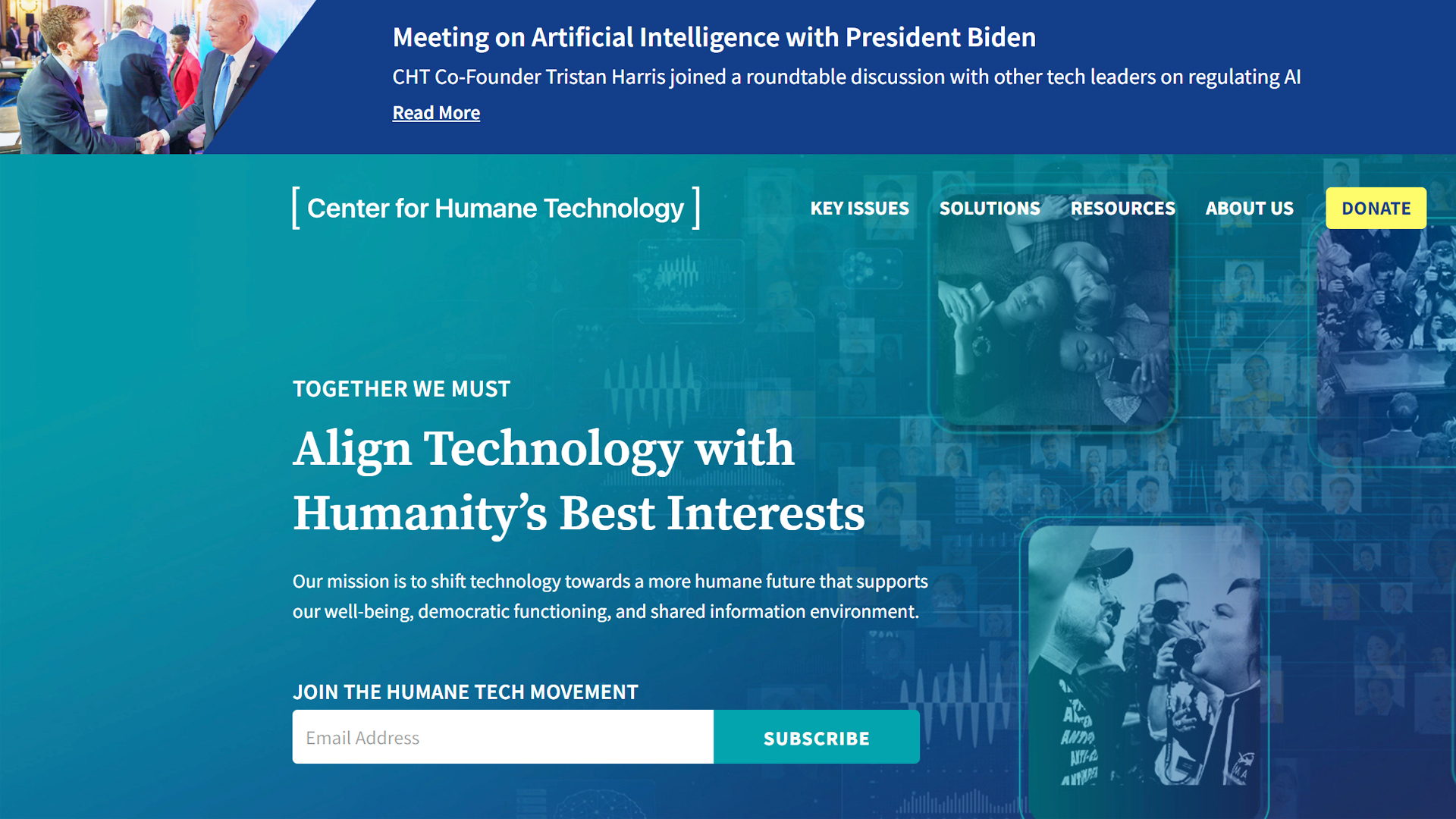
Center For Humane Technology https://www.humanetech.com/
The Center for Humane Technology is a nonprofit organization dedicated to addressing the ethical and societal challenges arising from the rapid advancement of technology, particularly in the realms of social media and digital platforms.
Founded by former tech insiders, including Tristan Harris, the organization aims to promote more ethical and responsible technology design and use.
This organisation is highly relevant to my topic concerning the use of technology and could be studied further to find solutions to my research questions.
The organization's primary mission is to reorient technology and digital platforms to prioritize the well-being of users and society as a whole, rather than focusing solely on maximizing profit and engagement. It seeks to raise awareness about the potential harms of current tech practices and advocate for changes that prioritize ethical design and user welfare.
The Center for Humane Technology engages in various initiatives and activities to achieve its mission. Public Education: They work to inform the public about the attention economy, digital addiction, and the impact of technology on mental health, democracy, and society.
Advocacy and Policy: The organization advocates for policy changes that promote ethical technology design, including regulations to protect user privacy and curb harmful practices.
Corporate Engagement: They collaborate with tech companies to encourage them to adopt more responsible and humane practices, emphasizing user well-being and mental health.
Research: The Center conducts research on the societal and psychological effects of technology and uses this research to inform their advocacy efforts.
Media and Awareness Campaigns: They run media campaigns and engage in public discussions to raise awareness about the need for a more humane approach to technology.
The organization has played a significant role in bringing attention to issues like digital addiction, misinformation, and the negative effects of social media on mental health. Their advocacy has influenced discussions about tech ethics and responsible tech design.
In today's digital age, the Center for Humane Technology serves as a vital voice advocating for a more thoughtful and responsible approach to technology. Its efforts aim to ensure that technology benefits humanity rather than harms it, emphasizing the importance of ethical design, user well-being, and a more humane digital landscape.
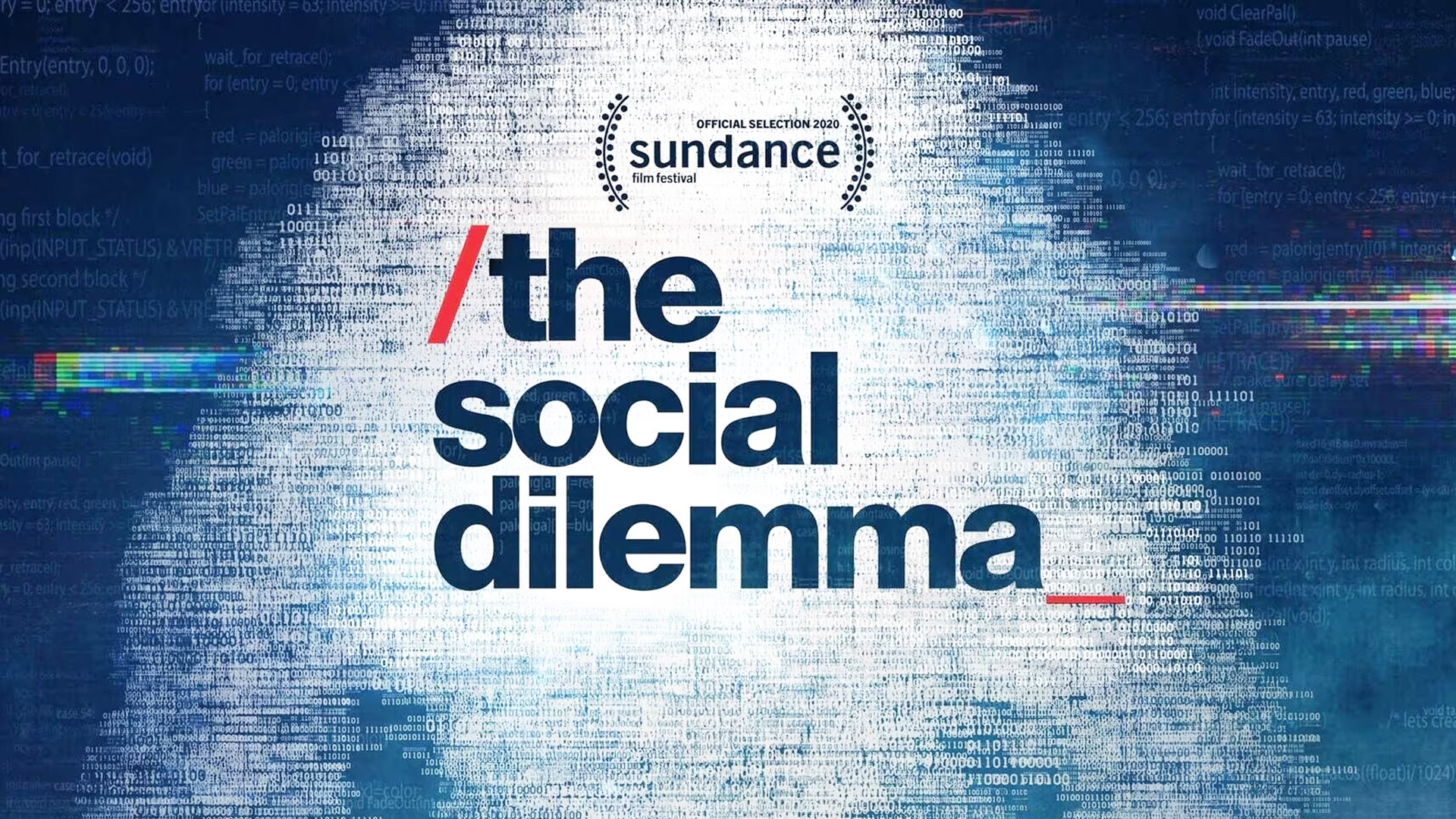
The Social DilemmaA documentary film that explores the concerning impact of social media and digital platforms on society's well-being and highlights the need for ethical technology use and design.
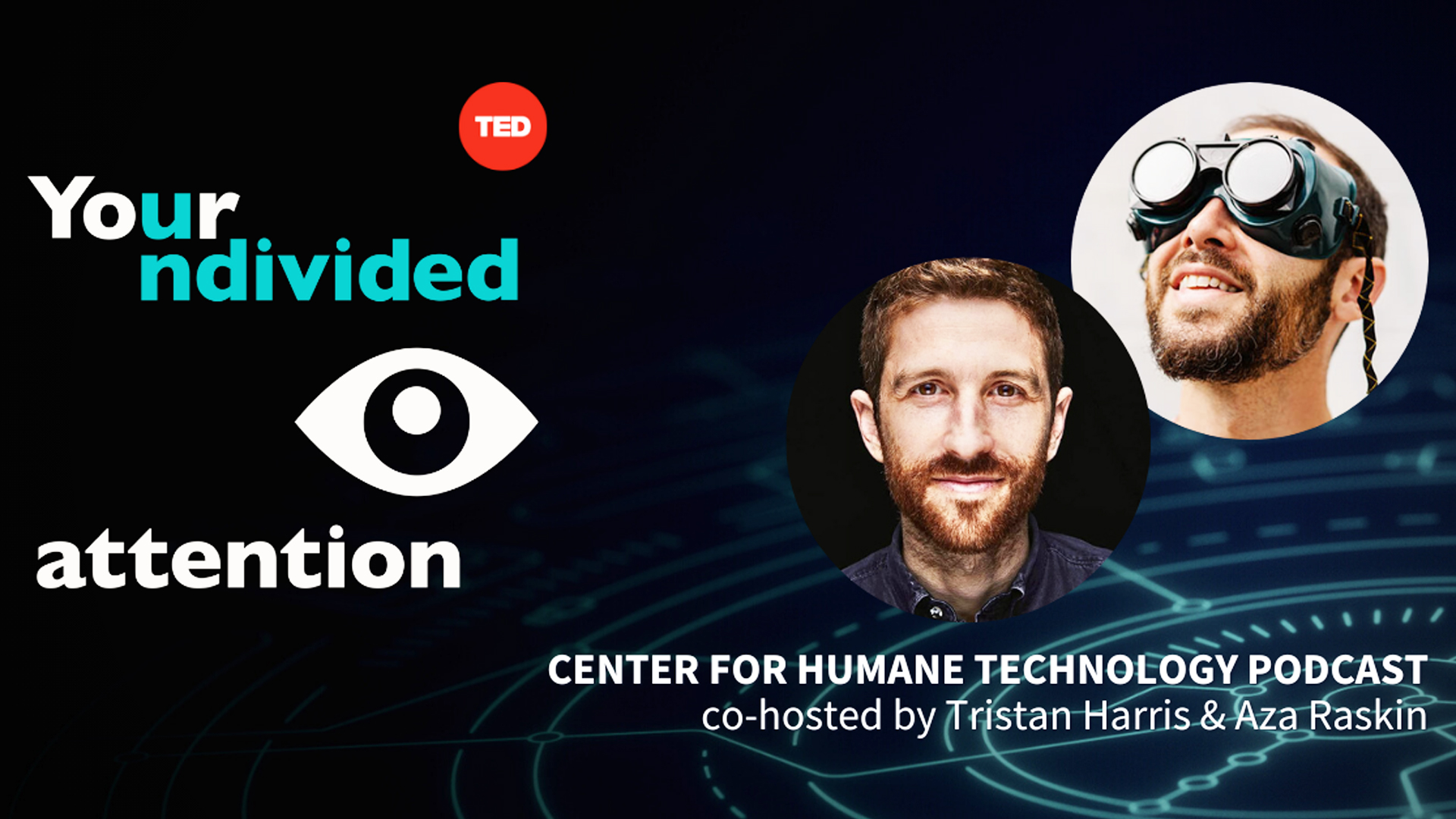
Your Undivided AttentionA podcast that delves into the complex and multifaceted relationship between technology and humanity, offering insights into the ethical, psychological, and societal aspects of our digital lives.
